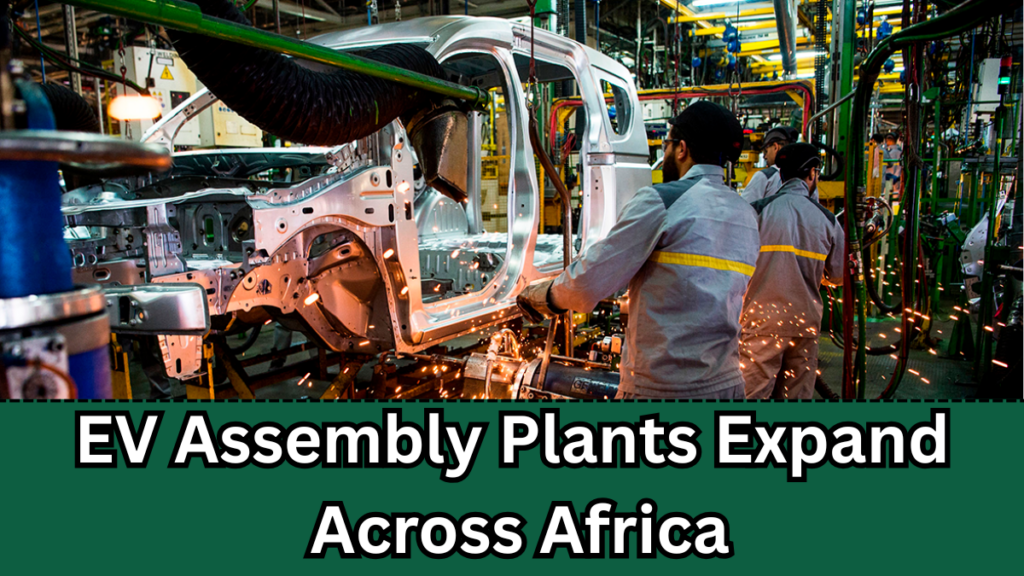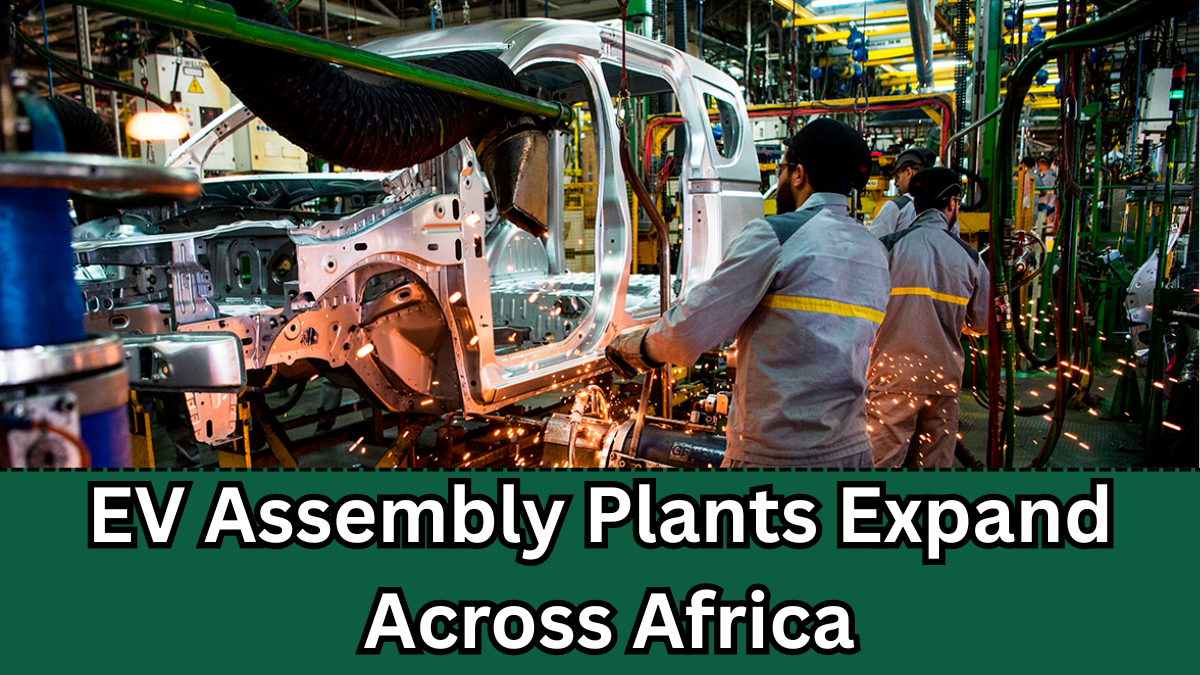The electric vehicle (EV) revolution is no longer limited to Europe, China, or North America. Africa is now stepping confidently into the EV manufacturing space, with EV Assembly Africa projects growing rapidly across the continent. This exciting transition is driving significant industrial growth and creating new opportunities for local communities.
Let’s explore how EV Assembly Africa is shaping the continent’s green future and strengthening local economies.

The Rise of EV Assembly Plants in Africa
Africa’s transport sector is moving towards greener solutions. Multiple countries are investing in local EV assembly plants to reduce costs, encourage sustainability, and fuel industrial growth.
Key Reasons for EV Assembly Growth in Africa
-
Growing Demand: More African consumers are choosing eco-friendly vehicles.
-
Cost Advantages: Local assembly helps cut down on import duties and vehicle prices.
-
Job Creation: New EV plants create employment and technical skill-building opportunities.
-
Sustainability Goals: Many governments are promoting green mobility to reduce emissions.
Countries Leading EV Assembly Africa Movement
Here’s a look at some of the leading countries in the EV Assembly Africa initiative:
| Country | Key EV Assembly Initiatives | Focus Areas |
|---|---|---|
| South Africa | Partnerships with international EV brands | Passenger and commercial EVs |
| Kenya | Local startups and small-scale assembly units | Two and three-wheelers |
| Morocco | Large-scale plants with export potential | Compact electric cars |
| Rwanda | Government-supported assembly hubs | E-motorcycles and e-buses |
These nations are actively investing in EV Assembly Africa and are expanding essential infrastructure like charging stations and green energy systems to support long-term industrial growth.
Benefits of EV Assembly Africa for Local Economies
The rise of EV Assembly Africa brings several benefits that extend beyond environmental impact.
How EV Assembly Drives Industrial Growth
-
Strengthens Local Manufacturing: Less reliance on imported vehicles.
-
Attracts Global Investment: Encourages international brands to set up operations in Africa.
-
Develops Supporting Industries: Boosts sectors like battery production and EV components.
-
Improves Local Skills: Introduces advanced technologies to African workers, fostering a skilled workforce.
Major Challenges Facing EV Assembly Africa
Despite the growth, there are notable challenges ahead.
-
Limited Charging Networks: More infrastructure is needed to encourage widespread EV use.
-
Policy Uncertainty: Governments need to provide clear policies and long-term tax incentives.
-
High Vehicle Costs: EVs are still more expensive compared to traditional cars in many African countries.
-
Supply Chain Limitations: Battery materials and EV components are mostly imported, creating potential delays and higher costs.
Future Outlook: What’s Next for EV Assembly Africa?
The future looks bright for EV Assembly Africa, with strong growth expected by 2025.
Key Future Trends
-
Expansion of local EV production to meet rising demand
-
Greater availability of affordable electric vehicles across the continent
-
Deeper regional partnerships to support industrial growth
-
Stronger export potential to neighboring countries and international markets
FAQs on EV Assembly Africa
Q1: Why is EV Assembly Africa important?
EV Assembly Africa is vital as it reduces the cost of electric vehicles, promotes sustainability, and supports local industrial growth through job creation and technological advancement.
Q2: Which countries are leading EV Assembly Africa?
South Africa, Kenya, Morocco, and Rwanda are key leaders in EV Assembly Africa, each focusing on specific segments like passenger EVs, two-wheelers, or e-buses.
Q3: What are the main challenges for EV Assembly Africa?
The major challenges include insufficient charging infrastructure, lack of supportive policies, high initial vehicle costs, and supply chain dependency on imported materials.
Q4: How does EV Assembly Africa support industrial growth?
It drives industrial growth by expanding local manufacturing, attracting international investments, creating jobs, and fostering skills in green technology sectors.
Click here to learn more
Sachin is a dedicated writer specializing in education, career, and recruitment topics, delivering clear and actionable insights to empower readers.
